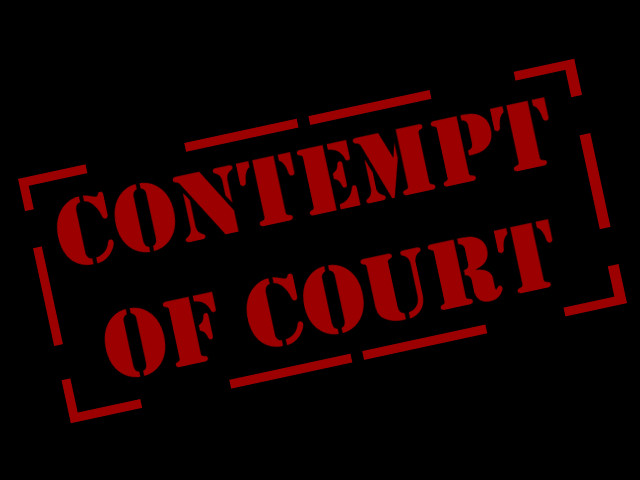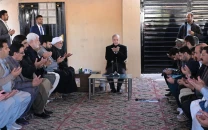Review petition: Govt wants scrapping of contempt law overturned
Petition filed through federation's counsel, Abdul Shakoor Paracha.

The law, which, the government admitted, was designed to save the new prime minister from contempt proceedings, was struck down on August 3 by a five-member bench headed by Chief Justice Iftikhar Muhammad Chaudhry. The bench declared the newly- enacted law null and void, clearing the way for possible legal proceedings against the prime minister.
Following the apex court decision, President Asif Ali Zardari held consultations with coalition partners and legal wizards to discuss options available to the government. While several options, including the introduction of an ordinance were discussed, the government decided to avail the option of filing a review petition.
The review petition against the judgment, filed by the federation’s counsel, Abdul Shakoor Paracha, prayed to the court to review its order issued against the defunct law. In its review petition, the government said that the Supreme Court was not an appropriate forum for hearing petitions against the contempt law.
“The order sought to be reviewed violates Article 25 of the Constitution in having entertained the petitions directly instead of rejecting these on the ground that the High Court should have been approached first,” the petition said.
The federation contended in its review that, since the over two dozen petitioners were not deprived of any fundamental rights, their petitions were not maintainable. The review petition added that, “the court fell into a manifest error of law in holding section 12 of [the law] to be contrary to Article 204(3) of the Constitution.”
The petition also highlights the following observations made by the court in its August 3 judgment as erroneous:
“[The law] has been promulgated under clause 3 of Article 204 of the Constitution, which confers power on the legislature to make law to regulate and exercise of power by the courts, and not to incorporate any substantive provision or defences as it has been done in proviso.”
“Impropriation of Article 248 (1) in proviso (i) to section 3 is tantamount to amending the Constitution, which cannot be done without following the procedure laid down in the Articles 238 and 239 of the Constitution”
“… transfer of proceedings from one judge/bench to another judge/bench is the prerogative of the Chief Justice being administrative head of his court, which cannot be controlled by the legislature, therefore, subsection (3) of section 8 [of the law] is violative of the principle of independence of judiciary.”
Published in The Express Tribune, August 9th, 2012.



















COMMENTS
Comments are moderated and generally will be posted if they are on-topic and not abusive.
For more information, please see our Comments FAQ